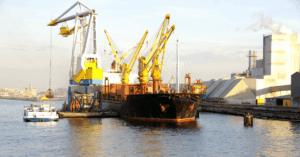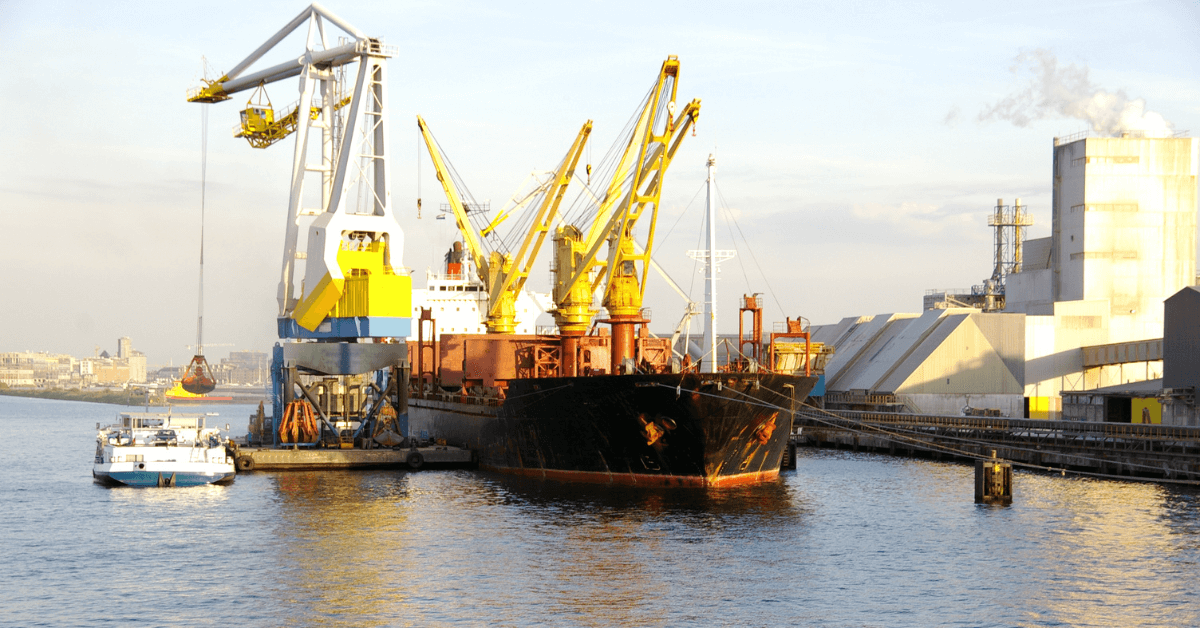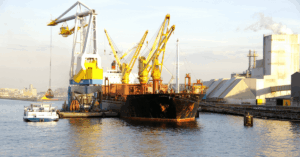
China Commissions First Hydrogen-Electric Tugboat At Qingdao Port
June 28, 2025
India’s Port Ban On Pakistani Cargo Raises Freight Costs, Delays Shipments
June 30, 2025

Ukraine is preparing to request the European Union to impose sanctions on Bangladeshi companies and officials for importing wheat that originated from Ukrainian territories currently under Russian occupation. This comes after Bangladesh failed to respond to multiple diplomatic letters from Ukraine warning against such imports.
According to documents reviewed by Reuters and shared by sources familiar with the matter, Ukraine’s Embassy in New Delhi sent at least four letters to Bangladesh’s Ministry of Foreign Affairs throughout 2025.
These letters claimed that more than 150,000 tonnes of grain were shipped from the Russian port of Kavkaz to Bangladesh between November 2024 and June 2025. Ukraine alleges that this wheat was mixed with grain taken from occupied regions such as Mariupol, Sevastopol, Kerch, and Berdiansk, making it difficult to detect its origin.
Ukrainian intelligence believes that exporters in Russia routinely combine their own wheat with grain taken from Russian-controlled areas of Ukraine before shipping it abroad. Ukraine considers this practice to be illegal and describes the goods as stolen.
Kyiv has been working to discourage international buyers from purchasing such grain, saying it encourages and funds Russia’s occupation.
The Ukrainian ambassador to India, Oleksandr Polishchuk, said Dhaka has not responded to Ukraine’s appeals, even when provided with details like vessel names and voyage dates. Since these efforts failed, Kyiv now plans to take the matter to the European Union.
In one letter dated June 11, the Ukrainian Embassy warned that Bangladesh could face “serious consequences” in the form of sanctions for accepting these shipments. It also stated that sanctions might not only target importing companies but could also include government officials and ministry leaders who knowingly support or ignore such imports.
Ukraine’s Prime Minister Denys Shmyhal previously stated that millions of tonnes of grain have been seized by Russian forces from occupied Ukrainian regions, with at least 180,000 tonnes stolen through Mariupol port alone by October 2024.
Ukraine says the illegal grain trade has continued since Russia’s initial invasion in 2014, and only grew after the full-scale war began in 2022. A Ukrainian official said that, according to their law, no voluntary trade is allowed between Ukrainian producers in occupied territories and Russian companies.
Despite the accusations, a spokesperson from Bangladesh’s Food Ministry told Reuters that the country does not import stolen grain, and that any wheat coming from Russian-occupied Ukrainian territory is banned under current policy.
However, trade data shows that Bangladesh was the fourth-largest buyer of Russian wheat in May, according to the Russian grain transport company Rusagrotrans. At the same time, Reuters estimates that grain from territories under Russian control, excluding Crimea, made up about 3% of Russia’s total grain harvest in 2024.
The EU, UK, and U.S. have already placed sanctions on tankers involved in Russian oil and weapons trade. The European Union has sanctioned 342 vessels in Russia’s “shadow fleet,” which they claim helps Moscow bypass global restrictions. However, the ships that delivered the grain to Bangladesh are not yet under sanctions.
Anitta Hipper, the EU’s spokesperson for foreign affairs and security policy, said in a statement that while the specific vessels mentioned are not under any restrictions right now, any proven involvement in transporting stolen Ukrainian grain could become grounds for future sanctions.
In April, a foreign vessel was detained in Ukrainian waters on suspicion of being involved in the stolen grain trade. Another ship was seized last year, and its captain was detained.
The Ukrainian government estimates that its agriculture sector has suffered around $80 billion in losses due to the war. This includes direct damages, disrupted logistics, higher costs of fuel and fertiliser, demining expenses, and land reclamation costs. Despite the war, agriculture remains a major source of export income for Ukraine, especially in grain, oilseeds, and vegetable oils.
One Russian grain trader, speaking anonymously to Reuters, said it is nearly impossible to trace the true origin of grain once it is loaded, since grain doesn’t have unique features like diamonds or gold. They explained that “the composition of impurities” doesn’t allow for clear identification of where the grain was harvested.
References: kyivindependent, tbsnews
Source: Maritime Shipping News


